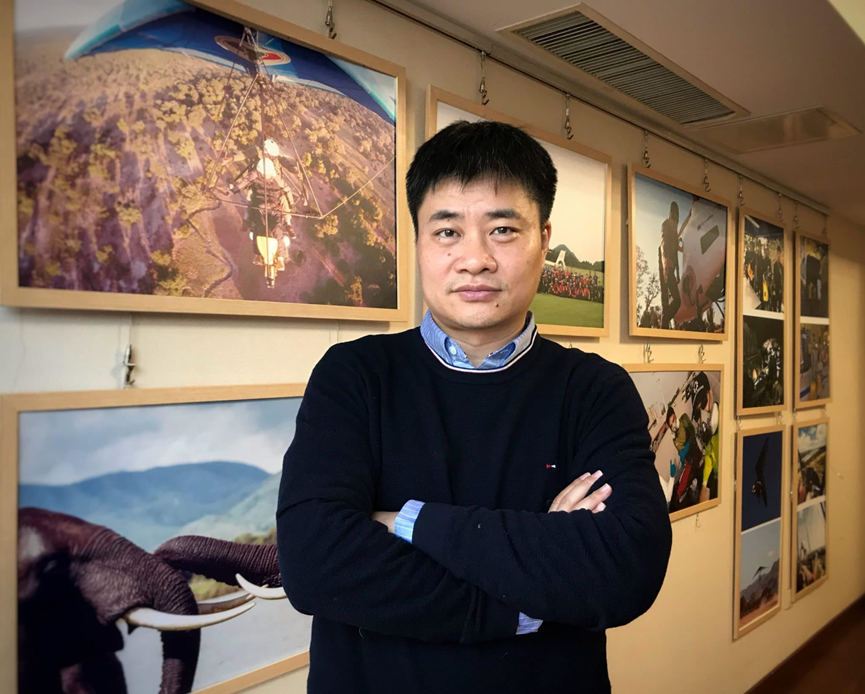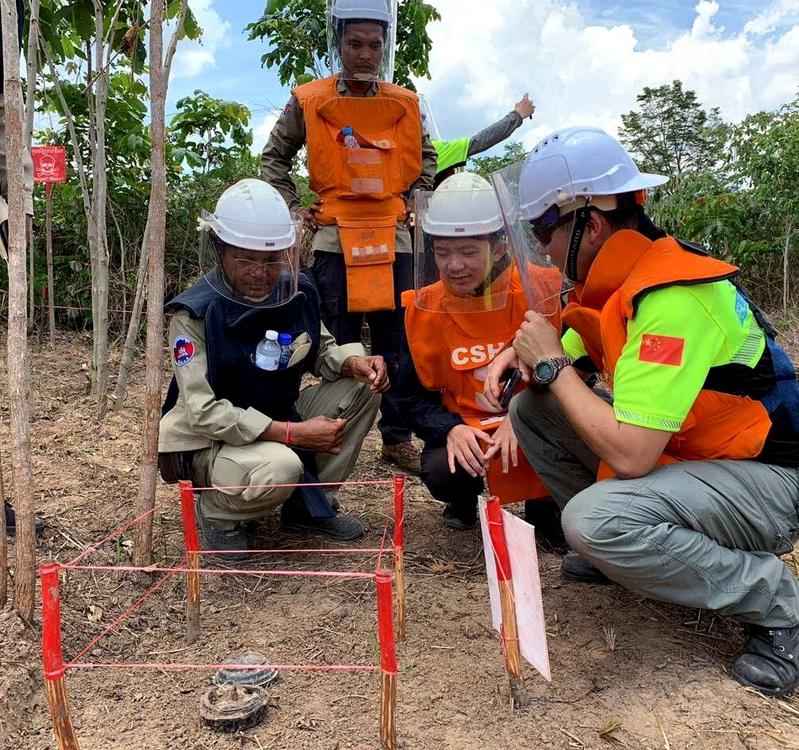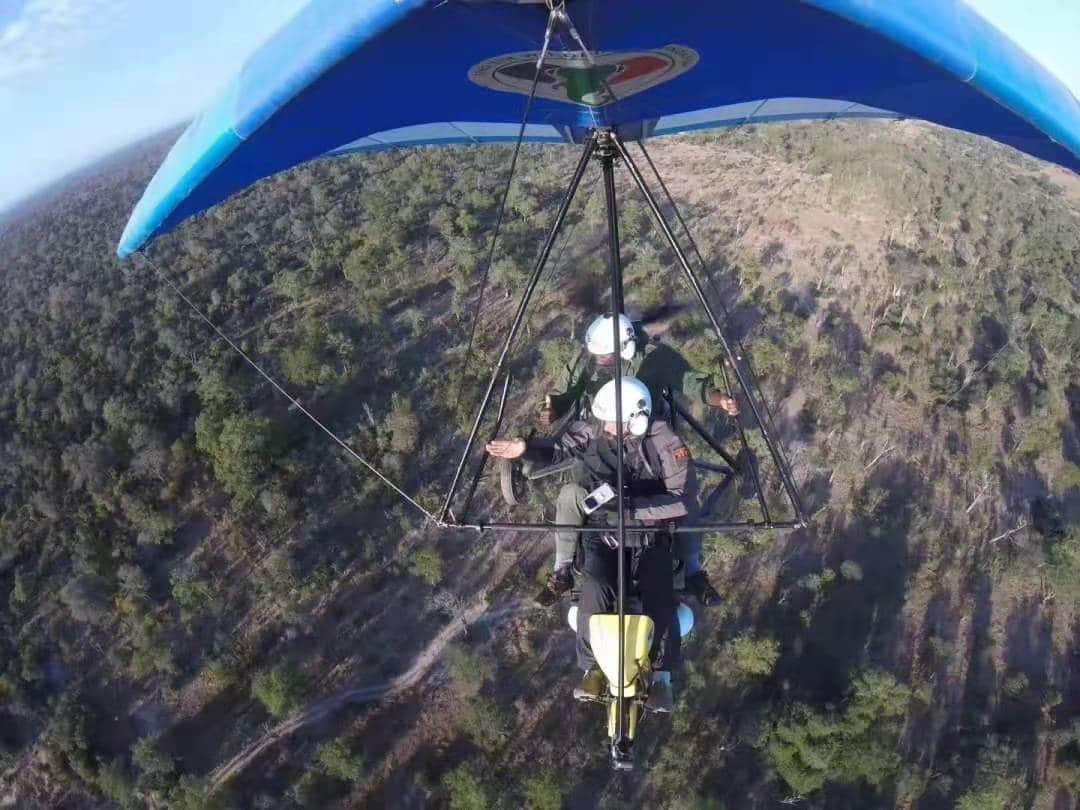209, Expert International Mansion,
Hootun South Road, Haidian District,
Beijing, China
Tel: 010-62928367 | Email: peaceland@peaceland.org.cn
The Peaceland Foundation Geneva Office invited Mr. Wang Ke to an online workshop on November 20th. This workshop focused on Mr. Wang’s arduous yet rewarding voyage of how he and his friends founded and developed Peaceland Foundation from a small disaster relief group in China to an international non-governmental organization that conducts operations across three continents. He also explained his plan for the future of Peaceland and his message to the young generation who wish to join in the cause of international and domestic humanitarian assistance.

Wang Ke started the Peaceland Foundation in 2018, aiming to take on global responsibility by rolling out humanitarian projects all over the world
Peaceland Foundation was officially founded in 2018, however, the founders’ first disaster relief operation can date back to 2008. Marked by the jubilation of the Beijing Olympics and Shenzhou VII Manned Spacecraft, the year 2008 had also seen the catastrophe of “5.12” Wenchuan earthquake. Among the professional soldiers and firefighters sent to rescue the disaster-stricken people were Wang and his friends. It was also the first time in Chinese history that the civilian force joined disaster relief on a considerable scale. After the successful experience from Wenchuan, Wang continued his efforts to natural disaster relief on a national scale.
In 2012, Wang decided to expand his mission beyond the border of China and contribute to the international disaster relief effort. The first destination was Mandalay, Myanmar. On November 11, 2012, an earthquake with a magnitude of 6.8 occurred in Mandalay. Due to political reasons, Myanmar regime blocked international aid to the victims and foreign aid works were facing severe access issues.
However, Wang and his ambitious friends were not deterred. Entering Myanmar on a tourist visa, they reached out both Chinese embassy and local authorities in Myanmar to get the administrative approval for their operation. The Chinese immigrants living in Myanmar also contributed greatly. With their local network and logistic support, Wang’s team was able to reach Mandalay as fast as possible. Wang’s 2012 Mandalay operation offered a good lesson which leads to a reliable mechanism for future operations.
During another disaster relief operation in Nepal in 2011, Wang realized a lack of effective cooperation can seriously hinder disaster relief and waste the resources that are so precious during a time of crisis. Even with multiple international assistance groups present and offering help, the Nepal operation was poorly coordinated and ineffective. This experience led Wang to seek for a more stable platform so that all the resources are allocated efficiently. Another change Wang made during this time was to make his operations normalized. They established standing reaction units in China that can react to disasters within hours, and further consolidated the mechanism for international operations relying on the support from Chinese network abroad and local authorities so that international operations can be achieved timely and effectively.

Peaceland Foundation members clear mines in Cambodia
Starting in 2015, Wang’s team turned to the anti-poaching campaign in Africa. From the highland of Zimbabwe to the savanna of Kenya, Wang and his Chinese team members who have always advocated for “no trade, no killing” met unexpected challenges. On the one hand, instead of adopting an absolute prohibition of poaching, some African countries prefer an “effective utilization under strict supervision.” approach which made the permitted certain hunting of wild animals. This difference in ideas made them uncomfortable. On the other hand, the complex natural system can make the ostensibly reasonable cause of anti-poaching difficult. For example, elephants were well-known for being butchered for the illegal ivory trade, and anti-poaching activities can effectively protect them. However, there are many more endangered species than elephants, and an excessive number of elephants puts new pressure on other animals in the local ecosphere. In addition, poaching may be the last resort of people in abject poverty, and anti-poaching campaigns would create social problems in that regard by forcing those people into criminal activities. Environmental crisis management and development are vital topics in contemporary sociology and political science. As practitioners, Wang’s story tells the importance to examine the case closely and conduct operations with due discretion.

Each year, the Peaceland Foundation works in Africa as part of their anti-poaching program
In his blueprint for the future, Wang pointed out that Peaceland Foundation want to continue its effort in both humanitarian and environmental crisis directions. His team fully understands the challenges they might face for focusing on such diverse concentration. Humanitarian aid such as disaster relief, refugee support, mine-clearing, etc., requires immediate actions, while environmental protection demands careful design. But since no other Chinese NGOs have covered these two essential fields. Even if it requires extra effort, it will be worth it.

In a time of increasing international tension and rising nationalism, a Chinese-based, internationally-oriented NGO must face two questions: where does the funding come from and why put money on international operations? Wang spoke directly to these two questions. For the funding, Wang’s team initially relied on Wang’s own and his philanthropical friends’ financial contribution. After officially founding Peaceland Foundation in 2018, Wang has dedicated himself to institutionalizing and standardizing the Foundation and raising money from online platforms based on society. Every operation Peaceland conducted relied on online fund-raising platforms such as Shuidi Gongyi (gongyi means charity in Chinese), Tencent Gongyi, and Sina Gongyi. These websites keep detailed and up-to-date reports of the amount of money raised as well as how the money is spent.
Peaceland Foundation in Helping Shanxi Flood
Wang also pointed out that such fund-raising is not “begging” for money, instead, what his team wants is to show the people that they are a reliable and competent force that can make the world a better place. In the Henan flood earlier this year, the response unit of Peaceland was deployed hours after the disaster struck, assisting local firefighters and distributing resources. These actions were updated on the websites and received applause from the people.
As for the overseas operations, Peaceland Foundation has always tried to work with local communities and follow the rules of neutrality and independency. The Foundation demonstrates its transparency by sharing it annual financial reports online so that the skepticism of governmental influence in Peaceland could dissipate.

Peaceland Foundation in Supporting Anti-Covid Campaign in Nepal
Ultimately, Wang discussed how future operations should be centered on each individual project. “Future operations will not be easy”, he emphasized, “and they would require more talented individuals with great interpersonal skills as diplomats.” The policy differences between China and other countries, the new challenges arising from the resolution of the old, and many other unforeseeable problems demand professional research and communication with local people. Some of these problems may require efforts beyond the capability of civilian NGOs, but what Peaceland can and will do is to alleviate them and create opportunities for future successful management.
Author: Chen Kaiming
Editor: Li Ling

209, Expert International Mansion,
Hootun South Road, Haidian District,
Beijing, China
Tel: 010-62928367 | Email: peaceland@peaceland.org.cn
© Copyright 2022 Peaceland Foundation 京ICP备 18056266号